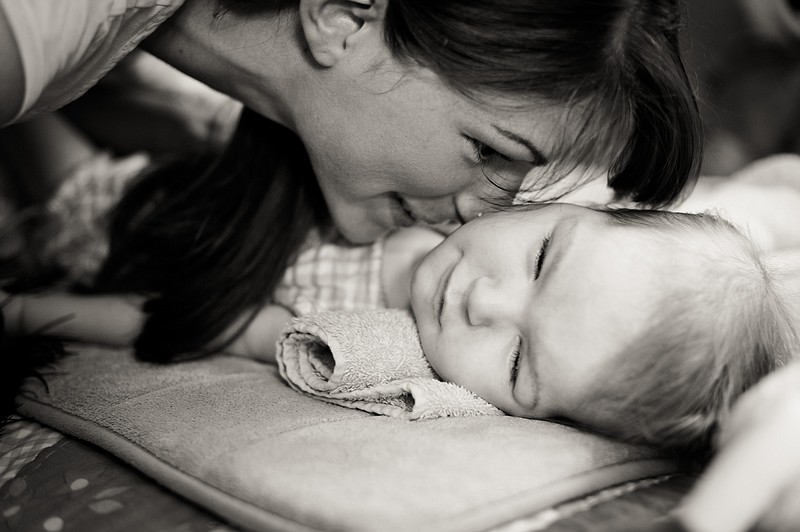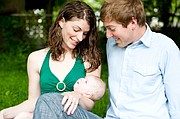Grief is like a supernova, says Ashley Jones.
"Your world is collapsing. But as you begin to heal, there is an explosion of love and creativity."
In 2015, on what should have been her daughter's sixth birthday, Jones launched Love Not Lost, a nonprofit with the mission of revolutionizing the way people heal through loss.
Her idea was to partner with volunteer photographers to provide free portrait sessions to families facing terminal diagnoses, helping preserve memories while also creating a tangible space, in the form of a high-quality photo album, to process loss.
"The beauty of a photo," says Jones, "is that it doesn't change. But you do."
In 2011, Jones lost her 21-month-old daughter Skylar Marie to spinal muscular atrophy, a disease similar to ALS.
After her husband returned to work, Jones remembers spending much of her time in bed, only getting up when her dog whimpered to be let outside. She didn't have the strength to return to her job as a graphic designer.
The more time that passed, the more those who knew her became weary.
"We had friends and family that stuck by us, but we had some close friends that fell off the face of the planet," she remembers.
After she began working with families through Love Not Lost, Jones heard similar stories.
One family told her, "We've been fighting [this disease] for three years, and we have no friends left."
In the wake of tragedy, says Jones, "I think people are afraid of saying or doing the wrong thing, of causing additional pain. They don't know what they're walking into, and it's scary. But part of healing is feeling loved and supported."
To date, Love Not Lost has photographed more than 85 families, mostly throughout North Georgia and the Greater Atlanta area.
"Chattanooga and Nashville are next on our list," Jones says. But with just 11 volunteer photographers and two full-time employees, the group's mobility is currently limited by its size.
Moreover, between marketing, training and the hiring of additional employees, the cost of entering each new city is around $100,000 per year, says Jones - and fundraising can be a challenge.
"People don't like to talk about death and dying. It forces people to reckon with their own mortality," she says.
In 2018, Jones decided to expand her organization's mission to include tools to help people better support their grieving loved ones. Through her website, she began offering a line of empathy cards, gift-a-session certificates and a free, online service that provides words and ideas for reaching out to a person who is having a hard time.
This summer, Love Not Lost will begin to offer online "corporate care" workshops, helping train business leaders to recognize grief and become more empathetic to their employees' needs.
"Grief is unique - even if we have the same loss, our experiences will be different," Jones says.
But it does share one attribute: Grief is an expression of love, she says.
"As long as I live I will love my daughter, so that means I will feel grief for the rest of my life. But it doesn't have to be painful," says Jones, who keeps two portraits of her daughter in her bedroom.
"For me, the photos are an opportunity to greet her, to say, 'Hey, sweet girl. You're here and I remember you."

